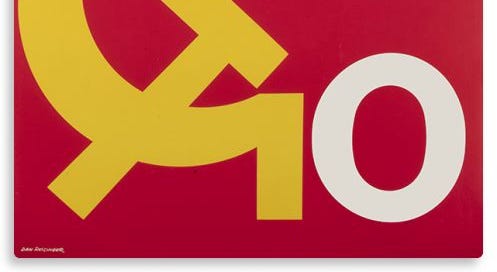We talk to Sergey Serebryany, my uncle. He is a Doctor of Philosophy and a professor of Indian Studies at the Russian State University for the Humanities in Moscow. He is also a Soviet Jew. We talk about his experience growing up in Moscow, about the myths of state-sponsored anti-Semitism, his relationship to Soviet and Jewish identity, and why unlike many others who became disenchanted with the Soviet project he didn’t re-Jewify but stayed true to his Homo Soveticus origins.
—Evgenia
A couple of notes.
We mention a letter about Jewish identity that Sergey wrote to his South African Jewish colleague.
You can check Yasha’s The Soviet Jew book project here. The part of the history that deals with the western campaign to “save” Soviet Jews can be found here. Yasha mentioned Elie Wiesel and his trip to Moscow in the late 1960s, which resulted in a book that describes Soviet Jews as basically being on the brink of annihilation. You can read his write up of that book and the Israeli propaganda campaign that helped produce it:
Reading it, you get the sense that Soviet Jews live in an atmosphere of total fear, scurrying around the streets like rats, hugging the shadows, avoiding the light, periodically poking their noses out of the dark to whisper, unprompted, long monologues to Elie Wiesel and then disappearing again into the murk, their faces still obscured by shadows and KGB agents fast on their tail. In Wiesel’s telling, Moscow has the feeling of the Warsaw Ghetto. The sense of doom is so near you can almost smell the burning flesh wafting out of an imaginary crematorium. And always there, at the center of the narrative, is Wiesel himself — Auschwitz survivor — called on by God to bear witness.
Want to know more? Check out previous episodes of The Russians.














Share this post